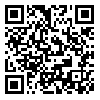BibTeX | RIS | EndNote | Medlars | ProCite | Reference Manager | RefWorks
Send citation to:
URL: http://hayat.tums.ac.ir/article-1-140-en.html
Background & Aim: Although cervical cancer has high prevalence, few qualitative studies have been carried out to reflect the perceptions of women on the influential factors that affect cervical cancer screening in Iran. The aim of this study was to explore a culturally-based experience of Karaji women regarding the barriers to and motivating factors for Pap smear screening test among Karadj women in 2007.
Methods & Materials: In this content analysis, eight focus groups were conducted using semi-structured guide questions (n=86).
Results: Findings revealed that factors such as medical advice, advice from friends and family, knowledge about symptoms and pap smear screening method, free and accessible services, and perceived threats would influence the women to undergo a Pap test. Major barriers were lack of knowledge about cervical cancer and its causative factors, inappropriate beliefs, fear from cancer diagnosis, and pain related to the procedure.
Conclusion: Regarding the influencing factors on the rate of Pap smear screening test, it seems that designing appropriate educational programs in order to promote knowledge and correct health beliefs using mass media and local communications will result in referring more women to undergo Pap smear screening test.
| Rights and permissions | |
 |
This work is licensed under a Creative Commons Attribution-NonCommercial 4.0 International License. |





